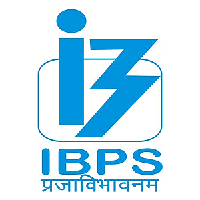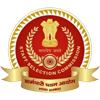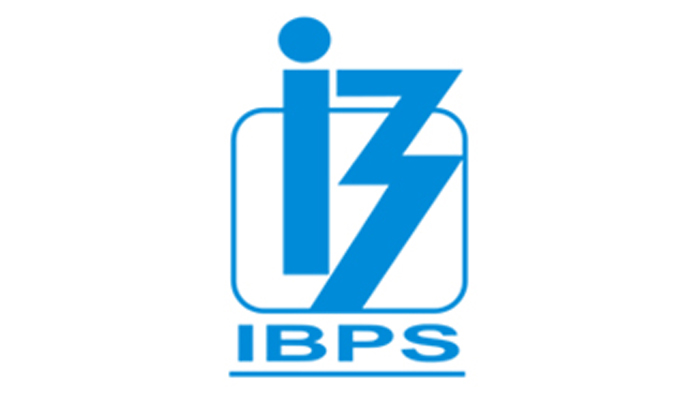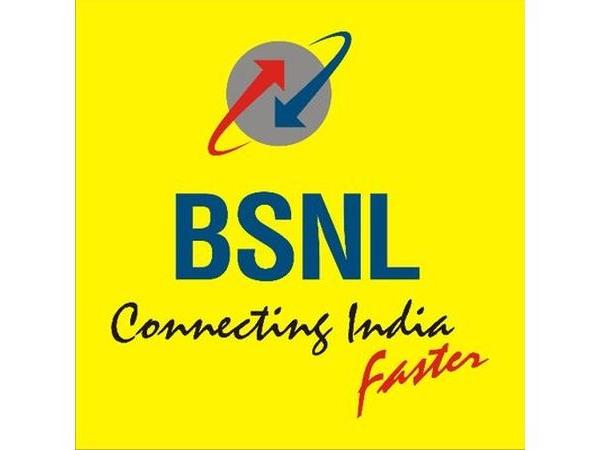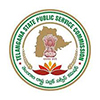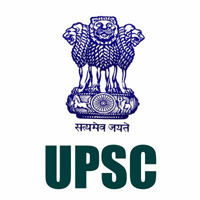
UPSC - Combined Geo-Scientist & Geologist Exam
Based on the latest pattern | Detailed Analysis
With the inauguration of the Constitution of India in January 26, 1950, the Federal Public Service Commission came to be known as the Union Public Service Commission. Every year, the Union Public Service Commission (UPSC) organizes the Combined Geo-Scientist and Geologist Examination for various Geo-Scientist, Geologist and Chemist Group 'A' in GSI and Junior Hydrogeologist (Scientist 'B'), Group 'A' for Central Ground Water Board posts in different departments. This is a great opportunity for candidates who have done masters in science stream and willing to do Government jobs. Log on to the official website to apply online or to check other important details.
UPSC - Combined Geo-Scientist & Geologist Exam Conducting Body:
The UPSC is India's Premiere Recruiting Agency for All India Services and Group 'A' and 'B' officers for Central Services. For the post of Geophysicist, Geologist and Chemist in GSI and Jr. Hydrogeologist in Central Ground Water Board, Union Public Service Commission conducts an exam yearly for desiring candidates.
UPSC - Combined Geoscientist & Geologist Exam Important Dates:
|
Events |
Dates |
|
Registration Date |
|
|
Application Date |
11/10/2022 to 25/10/2022 |
|
Admit Card Date |
10/02/2022 |
|
Preliminary Exam Date |
19/02/2023 |
|
Mains Exam Date |
24/06/2023and 25/06/2023 |
|
Result Date |
Will be updated soon. |
|
Mode to apply |
Online |
|
Link to apply |
UPSC Combined Geoscientist & Geologist Exam Selection Procedure:
The UPSC Geo Scientist & Geologist Exam shall be conducted in three different parts:-
-
Preliminary Test
-
Mains Test
-
Personality Test
UPSC Combined Geoscientist & Geologist Exam Pattern:
Part- I: Preliminary Examination:- It's an online objective type paper. The general study paper is common for all stream.
|
Paper |
Paper Stream |
Subjects |
Duration |
Marks |
|
I |
General Studies |
General Studies |
2 hours |
100 |
|
II |
Geologist/ Hydrogeologist |
Geology/ Hydrogeology |
2 hours |
100 |
|
Chemist |
Chemistry |
2 hours |
100 |
|
|
Geophysicist |
Geophysics |
2 hours |
100 |
Part- II: Mains Examination:- The second stage of the examination has four sets of papers containing descriptive type questions. Candidates who are applying for the posts of Geophysicist, Chemist, Geologist, and Junior Hydrogeologist are required to attempt all the subjects mentioned against respective categories below:-
For the Post of Geologists:
|
S.No. |
Subject |
Max. Marks |
Time Duration |
|
1. |
General English |
100 |
3 hours |
|
2. |
Geology Paper I |
200 |
3 hours |
|
3. |
Geology Paper II |
200 |
3 hours |
|
4. |
Geology Paper III |
200 |
3 hours |
For the Post of Geophysicists:
|
S.No. |
Subject |
Max. Marks |
Time Duration |
|
1. |
General English |
100 |
3 hours |
|
2. |
Geophysics Paper I |
200 |
3 hours |
|
3. |
Geophysics Paper II |
200 |
3 hours |
|
4. |
Geophysics Paper III |
200 |
3 hours |
For the Post of Chemists:
|
S.No. |
Subject |
Max. Marks |
Time Duration |
|
1. |
General English |
100 |
3 hours |
|
2. |
Chemistry Paper I |
200 |
3 hours |
|
3. |
Chemistry Paper II |
200 |
3 hours |
|
4. |
Chemistry Paper III |
200 |
3 hours |
For the Post of Junior Hydrogeologist:
|
S.No. |
Subject |
Max. Marks |
Time Duration |
|
1. |
General English |
100 |
3 hours |
|
2. |
Geology Paper I |
200 |
3 hours |
|
3. |
Geology Paper II |
200 |
3 hours |
|
4. |
Hydrogeology |
200 |
3 hours |
Note:- Candidates applying for the post of Geologist as well as Junior Hydrogeologist are required to appear for both the sets.
Part- III: Personality Test:- The candidates qualifying in the mains examination shall be called for the personality test round. Personal Interview carries 200 marks. The final merit list is prepared on the basis of the combined performance of the candidates in the Written and Personal interview stages.
UPSC Combined Geoscientist & Geologist Exam Eligibility Criteria:-
Nationality: Must be a citizen of India,
Age Limit:-
-
Candidate age must be between 21 years and 32 years applying for the Geologist, Geophysicist & Chemist posts.
-
Between 21 years & 35 years for Junior Hydrogeologist posts. Relaxations to the reserved category candidates are as follows:-
|
Category |
Max. Age limit relaxation |
|
SC/ST |
5 years |
|
OBC |
3 years |
|
Exservicemen including Commissioned Officers and ECOs/SSCOs. |
5 years |
|
Blind, deaf-mute, and orthopedically handicapped persons |
10 years |
|
Defence Services personnel (disabled in operations during |
3 years |
|
Domicile in J&K from January 1, 1980, to December 31, 1989 |
5 years |
Educational Qualification:-
-
For Grade A Geologists in Geological Survey of India:- Masters Degree in Geo Exploration or Geological Technology or Geological Science or Geology or Earth Science and Resource management or Mineral Exploration or Engineering Geology or Marine Geology or Oceanography and Coastal Areas Studies or Petroleum Geosciences or Petroleum Exploration or Geochemistry.
-
For Geophysicists Group A in Geological Survey of India:- M.Sc. in Physics or Applied Physics or M.Sc. (Tech.) (Applied Geophysics) or M.Sc (Applied Geophysics) or M.Sc. (Geophysics) or Integrated M.Sc. (Exploration Geophysics) or M.Sc(Marine Geophysics) or M.Sc. (Tech.) (Applied Geophysics)
-
For Chemists Grade A in Geological Survey of India:- M. Sc. in Chemistry or Analytical Chemistry or Applied Chemistry.
UPSC Combined Geoscientist & Geologist Exam Syllabus:
Paper-I: General Studies is common for all streams.
-
Current Affairs.
-
History of India and National Movement.
-
Indian and World Geography
-
Indian Polity and Governance
-
Economic and Social Development
-
Environmental Ecology, Bio-diversity, and Climate Change
-
General Science
1) For Geologists:-
Geology Paper I:
-
Geodynamics
-
Structural Geology
-
Geomorphology and Remote Sensing
-
Paleontology
-
Stratigraphy
Geology Paper II:
-
Mineralogy and Geochemistry & Isotope Geology
-
Igneous Petrology
-
Metamorphic Petrology and Processes
-
Sedimentology
-
Environmental Geology and Natural Hazard
Geology Paper III:
-
Indian Mineral Deposits and Mineral Economics
-
Ore Genesis and Geophysics
-
Mineral Exploration
-
Geology of Fuels
-
Engineering Geology
2) For Geophysicist:-
Geophysics Paper I:
-
Solid Earth Geophysics
-
Earthquake and Engineering Seismology
-
Mathematical methods in Geophysics
-
Geophysical Inversion
-
The mathematical method of Physics
-
Thermodynamics and Statistical Physics
-
Electrodynamics
-
Introductory Atmospheric and Space Physics
Geophysics Paper II:
-
Geophysical Potential Fields (Gravity and Magnetic)
-
Electrical and Electromagnetic methods
-
Seismic Prospecting
-
Borehole Geophysics (Principles of Well Logging)
-
Atomic and Molecular Physics and Properties and Characterisation of Materials
-
Nuclear and Particle Physics
-
Electromagnetic Theory
-
Classical Mechanics
Geophysics Paper III:
-
Radiometric Exploration/ Airborne Geophysical Survey for Geological Mapping
-
Marine Geophysics
-
Geophysical Signal Processing
-
Remote Sensing and GIS Applications
-
Solid State Physics
-
Laser System
-
Lase Cavity Mode
-
Electronics and Devices
-
Digital Electronics, Radar System, Satellite Communications
-
Quantum Mechanics
3) For Chemist:-
Chemist Paper I:
-
Chemical Periodicity
-
Chemical Bonding and Structure
-
Chemistry of Coordination Compound
-
Acid-Base Reactions
-
Precipitation and Redox Reaction
-
Organo Metallic Compound
-
Nuclear Chemistry
-
S & P Block Element
-
Chemistry of d & f block elements
Chemist Paper II:
-
Kinetic Theory and the Gaseous state
-
The collision of Gas molecules, Real Gases
-
Solid and Liquid state
-
Thermodynamics and Equilibrium
-
Acid- Bases solvent
-
The solution of Nonelectrolytes
-
Chemical Kinetics and Catalysis
-
Absorption and Surface Chemistry
-
Electrochemistry
-
Photochemistry
-
Quantum Chemistry
-
Basic principle and application of Spectroscopy
-
UV Spectra and PMR Spectra
Chemist Paper III:
-
The theoretical basis of Quantitative Inorganic analysis
-
Gravimetric Analysis
-
Volumetric Analysis
-
Acid-Base Titrations
-
Redox Titrations
-
Potentiometry
-
Complexometric Titrations
-
Chromatographic methods of analysis
-
UV visible spectroscopy
-
Flame Photometry and Atomic absorption spectrometry
-
X-ray method of analysis
-
Inductively coupled plasma spectroscopy
-
Analysis of Minerals, Ores, and Alloys
-
Analysis of Petroleum and Petroleum products
-
Analysis of coal and coke
-
Organic Chemistry
-
Organic Spectroscopy
For Geology/ Hydrogeology:
-
Physical Geology
-
Structural Geology
-
Mineralogy
-
Igneous Petrology
-
Metamorphic Petrology
-
Sedimentology
-
Paleontology
-
Stratigraphy
-
Economic Geology
-
Hydrogeology
FAQs:
Ques 1. How can an applicant apply for examinations conducted by the UPSC?
Ans. Applicants can apply online for the examinations through the official website.
Ques 2. What is RID & TID?
Ans. RID also called Registration ID, is generated by the system when the candidate completes PART I registration of his/her application and TID is Transaction ID, which is given by the State Bank India when the candidate deposits his/her fee in cash. TID is automatically generated when a candidate uses Internet Banking or credit/debit card mode for making the fee payment.
Ques 3. What precautions should be taken by a candidate while filling up the Online Application Form?
Ans. Please read the instructions carefully before filling up the Online Application Form.
Ques 4. When are the e-Admit Cards issued?
Ans. The eligible candidates are issued e-Admit Cards around three weeks before the commencement of the Examination. The e-Admit Cards are made available on the UPSC website for the candidates. The Admit Card is not sent by post.
Ques 5. What is the meaning of 'Fictitious Payment' or 'No-Fee'?
Ans. Those payments mentioned by the candidates in their online application, which are not authenticated by the State Bank of India, i.e. the designated bank managing the entire payment module, are called Fictitious Payments or No Fee.
Ques 6. Which category is exempted from payment of examination fee?
Ans. Female candidates, Persons with Benchmark Disabilities (PwBD), and SC/ST categories belonging candidates are exempted from payment of examination Fee.
Ques 7. Can a candidate fill UPSC form twice?
Ans. Yes. He/she can change optional paper, medium, choice of location. They can fill as many times as they wish. But UPSC considers the lastest filled form only and the rest all are considered null and void.
Ques 8. What action the Commission can take in case of submission of false information by the candidates?
Ans. If any candidate found producing false information, adopting various unfair means in the examination like impersonation, cheating, etc., is liable to be disqualified and/or debarred from writing UPSC examinations as decided by the Commission. In this regard, a detailed stipulation is incorporated in the examination Notice.
Ques 9. How much time is given to the candidates to apply online?
Ans. The time is always mentioned in the Examination Notice. A candidate gets at least 3 weeks' time to apply.
Ques 10. Is it possible to change the Date of Birth once submitted in the form?
Ans. No, The Commission does not allow change of Date of Birth that has been furnished by a candidate and recorded by the Commission on any ground whatsoever.
Ques 11. I have made multiple payments through Credit/Debit card. Whether the extra amount paid gets refunded back?
Ans. Yes, extra payments made by a candidate against an application number gets refunded automatically within 3-4 days.
Ques 12. Name the centers for examination.
Ans. Following are the centers:
|
Ahmedabad |
Jammu |
Bangaluru |
Bhopal |
|
Kolkata |
Mumbai |
Chandigarh |
Lucknow |
|
Cuttack |
Chennai |
Patna |
Delhi |
|
Prayagraj |
Shillong |
Dispur |
Shimla |
|
Hyderabad |
Thiruvananthpuram |
Jaipur |
Ques 13. I have submitted the Online Recruitment Application. Do I have to send the printout of the application to the UPSC by post/by hand also?
Ans. No, you are not required to send the printout of the application to the UPSC by post/by hand. However, you have to bring the printout of your Online Application along with other documents if you get shortlisted for the interview, for which you are informed separately.
Ques 14. Can a candidate change his/her Community Status?
Ans. The Commission does not entertain a request for a change of community from unreserved to reserved category once the examination process is initiated.
Ques 15. Are requests for change of Centre/ Venue accepted?
Ans. The candidates should note that no request for change of Centre / Venue is accepted.
Conclusion: UPSC conducts both prelims and mains exams in Offline mode. Prelims exam is OMR based and Mains exam is both objective and descriptive type. So, it is advised to the candidates to check the official website regularly. All the best for your exam

